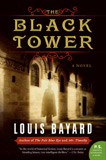Summary | Excerpt | Reading Guide | Reviews | Beyond the Book | Readalikes | Genres & Themes | Author Bio

Me, I have acres of time, but if I were to write up my life, I don't think I could start with the usual genuflections - all those ancestors in halberds, I mean, the midwives catching you in their calloused mitts. No, I'd have to start with Vidocq. And maybe end with him, too.
A strange admission, I know, given that I spent no more than a few weeks in his company. Fifteen years have passed with virtually no word from him. Why, then, should I bother revisiting the terrible business that brought us together?
Not from any hope of being believed. If anything, I write so that I may believe. Did it really happen? In quite that way? Nothing to do but set everything down, as exactly as I can, and see what stares back at me.
And how easily the time slips away, after all. I need but shut my eyes, and two decades vanish in a breath, and I am standing once more in ...
The year 1818. Which, according to official records, is the twenty-third year in the reign of King Louis XVIII. For all but three of those years, however, his majesty has been reigning somewhere else entirely - hiding, an unkind soul might say, while a certain Corsican made a footstool of Europe. None of that matters now. The Corsican has been locked away (again); the Bourbons are back; the fighting is done; the future is cloudless.
This curious interregnum in French history goes by the name of "the Restoration," the implication being that, after senseless experiments with democracy and empire, the French people have been restored to their senses and have invited the Bourbons back to the Tuileries. The old unpleasantness is never alluded to. We have all seen enough politics to last us a lifetime, and we know now: to take a hard line is to take a hard fall.
The foregoing is excerpted from The Black Tower by Louis Bayard. All rights reserved. No part of this book may be used or reproduced without written permission from HarperCollins Publishers, 10 East 53rd Street, New York, NY 10022
Your guide toexceptional books
BookBrowse seeks out and recommends the best in contemporary fiction and nonfiction—books that not only engage and entertain but also deepen our understanding of ourselves and the world around us.